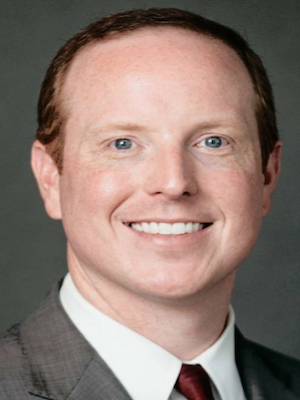
President Donald J. Trump
| File photo
President Donald J. Trump recently signed four executive actions in response to a congressional stalemate on the next round of COVID-19 relief, drawing praise from a Texas economist.
Texas Public Policy Foundation (TPPF) Chief Economist Vance Ginn provided brief overviews on the use of federal Disaster Relief Funds (DRF) to boost state unemployment insurance funds, the payroll tax issue and enhanced unemployment insurance.
“The goal of President Trump’s four executive actions on Aug. 8 is to provide financial assistance at a time when Congress hasn’t acted to help struggling families due to the disruptions caused by COVID-19,” Ginn wrote. “Currently there is uncertainty regarding these actions that could weigh on employer and employee decisions until further clarity is provided. While these actions may increase uncertainty that hinders economic activity, they can help American families in the short run by providing additional aid until state and local governments, hopefully soon, safely fully reopen society.”

TPPF Chief Economist Vance Gin
| Photo courtesy of the TPPF
Ginn offers an informed perspective, having recently served more than a year as the associate director for economic policy for the Office of Management and Budget (OMB). His role was to advise the OMB’s director on economic and fiscal policy matters, manage a team that sought evidence of good government and modeled the economic assumptions in Trump’s fiscal-year 2021 federal budget, which proposed a record of $4.6 trillion in cuts to the national debt over a decade.
Ginn said the Aug. 8 executive actions do not increase the deficit directly.
“The $44 billion for the federal enhanced unemployment insurance is paid from the funds available in FEMA’s disaster relief fund," he said. "And the deferral of payroll taxes is just a deferral so doesn’t add to the deficit unless Congress forgives those taxes through legislation later. Also, the Social Security Trust Fund won’t take a hit as money will be transferred from the General Fund to it until the payroll taxes are paid or forgiven, which is what happened after the 2010 tax bill under the Obama administration cut the payroll tax by 2 percentage points.
"Regardless, there is a need to get businesses operating and workers working again by reopening society so problems related to the lives and livelihoods of Americans along with our fiscal solvency aren’t put further at risk.”
Ginn said Trump's moves could put more money in taxpayers’ pockets as well as helping people find jobs as state and local governments loosen their lockdowns.
“This could happen by deferring the payroll taxes and employers not withholding it to possibly pay it later and then by the $300 per week in enhanced [unemployment insurance] not being so high that 68% of Americans who make less than the $600 per week previously provided,” he said. “Again, the key is to get businesses operating again and for workers to be connected to a job that will help to increase economic activity on the supply side that is critical for us to have a stable and strong recovery.”
Ginn said that more can — and must — be done to speed economic recovery.
“Families across America are struggling from being unemployed and being uncertain whether they can keep their business open or when they will get a job or be called back,” he said. “In order to help the American people, we need accurate and reliable COVID-19 data that includes timely demographic information to understand more about its contagion and effects so hospitals aren’t overwhelmed and vulnerable populations are assisted with necessary resources as governments reopen society for everyone else. Along with that, there is a need to rightfully provide funding to businesses that were stripped of their resources from governments during lockdowns.”
The TPPF supports a targeted, short program called the Workplace Recovery Act, which covers businesses‘ net operating losses so they can keep workers onboard and rehire others until this lockdown situation is over.
“Fortunately, Congress could reauthorize the available $1.3 trillion from its other already passed legislation for this program and scrap the rest of the measures under consideration that aren’t targeted or timely,” Ginn said. “In addition to state and local governments reopening society and Congress passing the Workplace Recovery Act, there is a need for governments to get their budgets under control by reducing wasteful spending so that this redistribution of incomes through the government sector doesn’t further slow economic activity.
“Another thing is ending unnecessary regulations, particularly those that were suspended during the lockdowns,” he continued. “By following this approach, American families can have some calm from increased certainty about their future during a chaotic time, which is what the president seems to be trying to provide even as Congress does its best to make the situation worse.”
Ginn earned his doctorate in economics at Texas Tech University and has taught at Texas Tech and Sam Houston State. He joined the Texas Public Policy Foundation in 2013 and worked there until joining the Trump administration in 2019. He returned to the foundation in May.
Ginn said his goal at the TPPF is to preserve the state as a place where Texans can build their careers, raise their families and live their lives freely.